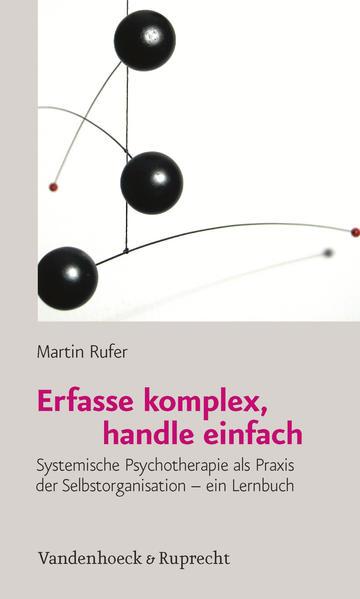Psychotherapy as practical self-organization may sound complicated, but it actually isn´t. If we look at what Martin Rufer has accomplished, we quickly discover what is meant by this idea.How can we understand and shape therapeutic processes? Who and what is important? Why do some therapies falter and others succeed? In this volume the theory of self-organization forms the basic framework for practitioners to study and understand how therapist and client variables interface. Martin Rufer recounts many case examples from his decades-long experiences concerning the mandate, interventional strategies and stumbling blocks that can crop up in therapeutic settings. The generic principles according to Haken and Schiepek serve as the common theme for setting up cases and for reducing the complexity of the material in order to deal with the case directly and simply.
ISBN: 978-3-525-40179-8








